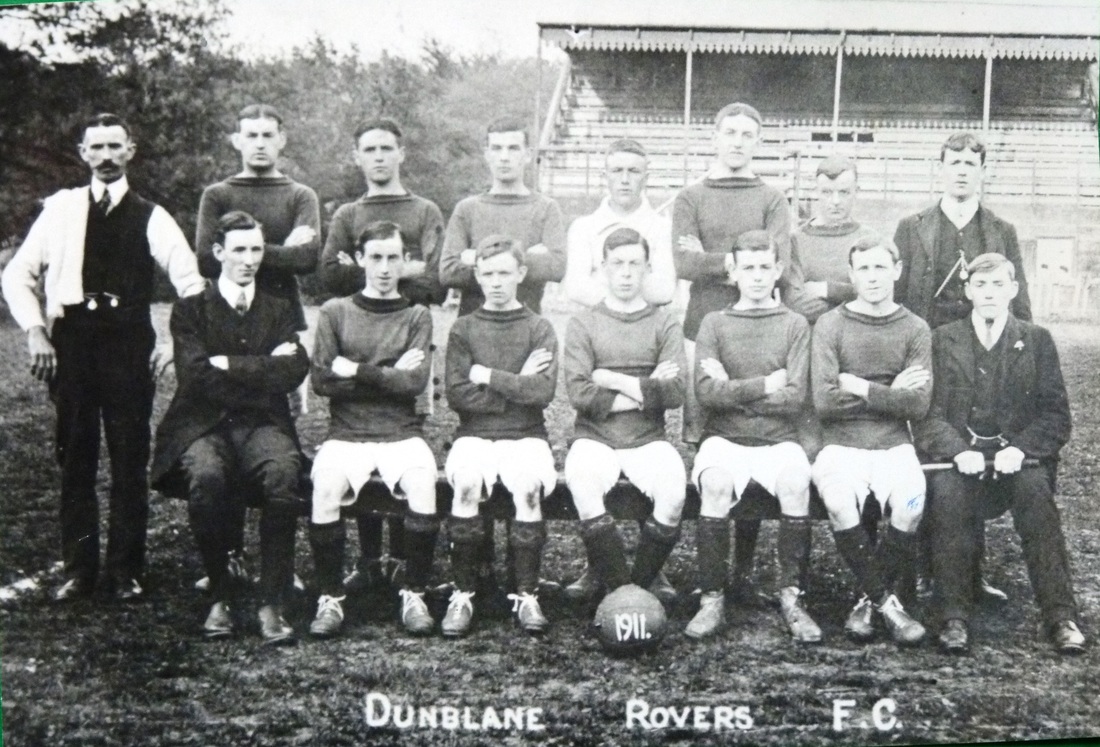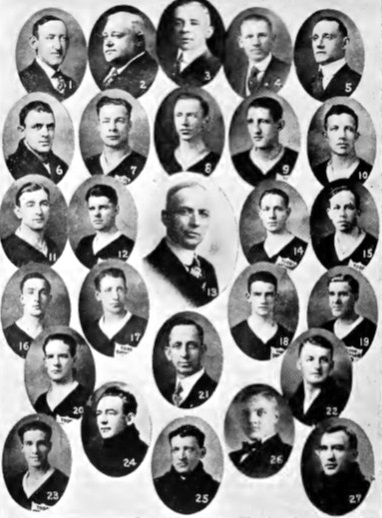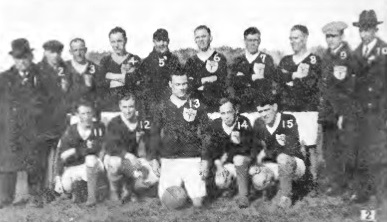But one thing I hadn’t expected was that Dunblane had another internationalist in their ranks. His name was John McGuire.
All I knew about him was that he was a local lad who was in the team’s last Perthshire Cup winning team of 1913, and had gone on to play for St Johnstone, Crieff Morrisonians and Dundee Hibs - not exactly the pedigree of a top level player.
Recently, however, I found out that McGuire emigrated and carried on playing football across the Atlantic, where he won the American Cup twice and in 1925 was selected for the USA national team. What is more, he was inducted into the US Soccer Hall of Fame.
John McGuire has a fascinating life story. He was born in Dunblane on 3 March 1893, the son of Willie McGuire (1858-1939), a founder of Dunblane FC and a professional athlete on the Highland Games circuit.
Brought up in Millrow, John played with the successful local juvenile side, Dunblane Rovers, and broke into the Dunblane team in 1911 as an 18 year old, making an immediate impact by scoring five goals in a 10-0 defeat of Comrie in the Perthshire Cup.
Dropping back to the amateur ranks, he joined Crieff Morrisonians but after just two matches the club closed for the war. Exempted from military service, apparently due to an old head injury for which he sometimes wore a cap while playing, he worked as a tailor in Perth and from 1915 to 1919 played for Dundee Hibs, who were in the wartime Eastern League.
In the spring of 1919 he emigrated to Toronto, where he signed up with Ulster United. The local press soon described him as a 'star centre forward', but he was not around for long as after he got married in 1920, to Annie McNaughton, he moved to New York. There, his football career really took off.
He joined the unlikely sounding Robins Dry Dock FC, at a time when many US soccer teams were backed by industrial concerns. Based in Brooklyn, they were crowned national champions on 19 April 1921: McGuire scored his team’s first goal as Robins Dry Dock won 4-2 against Scullin Steel of St Louis, Missouri, in the USFA National Challenge Cup Final, played in front of 6,000 spectators at Fall River.
McGuire’s third final in as many years was on Easter Sunday, 1 April 1923, by which time he had joined Paterson FC in New Jersey. The opposition was yet again Scullin Steel, and a record crowd of 16,000 in the old baseball ground at Harrison, NJ saw an exciting 2-2 draw after extra time. There should have been a replay the following week, but Scullin announced they could not play as four of their team were professional baseball players and obliged to resume their summer contracts, and another three were injured. Paterson were awarded the cup by default.
One curious game he played for Paterson was in September 1922, against the touring Dick Kerr’s ladies team from England. McGuire scored once in a 6-3 victory.
He carried on moving clubs, spending one year each with New York Field Club (1923-24), New Bedford Whalers (1924-25) and Brooklyn Wanderers (1925-26), and it was during this last season that he won his international cap. At the age of 32, he played for USA in a 6-1 win over Canada, at Brooklyn on 8 November 1925.
Having hung up his boots in 1926, Johnny McGuire remained in Brooklyn, where he worked as a machinist, for the rest of his life. He was one of the earliest inductees to the US Soccer Hall of Fame in 1951, just the second year of its existence, and died on 18 November 1962.



 RSS Feed
RSS Feed